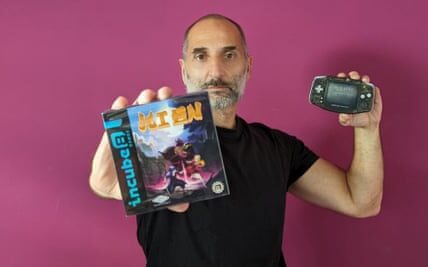Review of “The Future” by Naomi Alderman – a thriller set in a post-apocalyptic world driven by technology.

A
Following three smaller novels, Alderman achieved great success with her fourth novel, The Power, in 2017. It became a worldwide bestseller, won the Women’s Prize for Fiction, and was named book of the year by both Barack Obama and Bill Gates. The novel’s premise is that teenage girls suddenly acquire the ability to generate electricity within themselves and use it to harm or kill others. It explores the repercussions of this power shift, depicting a world where men now live in constant fear for their physical safety. Written as a fast-paced thriller with plenty of action and diversity, it is highly engaging and easy to read.
In her latest book, The Future, Alderman maintains her techno-thriller style set in San Francisco. However, the story is not as gripping this time and the hypothetical scenarios presented are not as captivating. The novel boldly begins with the end of the world, as three wealthy tech moguls escape to their luxurious survival bunker. These individuals are Lenk Sketlish, CEO of a combined version of Facebook and X/Twitter called Fantail; Zimri Nommick, CEO of Anvil (aka Amazon); and Ellen Bywater, CEO of Medlar, the most successful personal computing company (named after a small, soft type of apple).
After the catastrophic beginning, we are taken back in time. Lai Zhen, a journalist covering technology and a popular figure online, meets Martha Einkorn, Lenk Sketlish’s trusted assistant. The two become romantically involved. Zhen is investigating the actions of the tech leaders and gets dangerously close to the truth, prompting an assassination attempt on her life. We learn that Martha grew up in a doomsday cult in Oregon, led by her father Enoch who preached about the impending end of the world and the downfall of urban societies like Sodom. Enoch divides the world into two categories: “foxes” and “rabbits,” and encourages humanity to reconnect with its sense of wholeness. As a teenager, Martha managed to escape from the cult and eventually rose to a high-ranking position in the corporate world at the beginning of the novel. However, Enoch had also taught her various survival skills during her childhood, which will undoubtedly prove useful as the story unfolds.
The phrase, “On the day the world ended …”, is actually meant to mislead. Lenk, Zimri, and Ellen are not worried about the apocalypse itself. They believe they can survive it and inherit the Earth afterwards. Their main concern is being able to receive sufficient warning to reach their survival bunker before disaster strikes. To help with this, they have created an AI named AUGR that analyzes all available data and potential risks in order to predict the end of the world in advance. In the novel, it is not the actual end of the world that starts the story, but a warning from AUGR. This will be important later on in the novel. I won’t give away too much, but let’s just say that the plot twists in The Future are not difficult to predict without a magical prophetic computer.
The novel The Future is similar to a rough draft with uneven pacing, off-topic tangents, and an abundance of mini lectures on various subjects including the biblical tale of Lot, machine learning (with illustrations), and the evolution from hunting and gathering to farming. The author, Alderman, attempts to balance these informative sections with action sequences, but they come across as overly exaggerated and unconvincing. In an attempt to add excitement, there are scenes of violence and sexual encounters that seem forced and out of place in the narrative. While renowned author Raymond Chandler advised thriller writers to add a man with a gun when in doubt, Alderman’s attempts to do so fall short and feel like desperate attempts to recapture the reader’s attention rather than well-crafted plot-driving moments. The art of balancing action and suspense is not mastered in The Future.
Zhen, who is of Chinese-American descent, speaks with a London accent throughout the story (“I have no interest in sharing personal details about my life for your own pleasure,” she tells Lenk at one point). A young Martha escapes a wild bear by climbing a tree – however, it is common knowledge that bears are able to climb trees and can do so faster than humans. Zhen kills an enemy by using high-tech artificial snow in a shopping mall, causing the enemy to freeze solid. Alderman may want us to draw parallels to Lot’s wife, who is referenced multiple times, but the unlikelihood of the kill takes away from the story.
Unfortunately, Alderman’s efforts to tackle significant and intriguing themes are hindered by the influence of online life and social media on society. This topic is undoubtedly relevant, but the execution of the novel falls short. Compared to The Power, The Future seems to be a regression.
Skip over the advertisement for the newsletter.
after newsletter promotion
Source: theguardian.com


